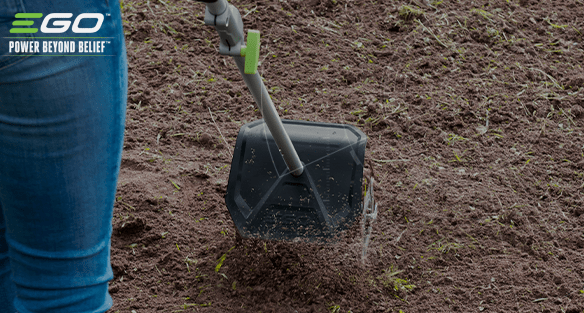Gardening gives us a gateway to connect with nature like no other pastime. There’s something satisfying about growing your own food and encouraging wildlife into your patch. Beyond eating your own organic fruit and vegetables, gardening is an excellent way to stay healthy overall.
How gardening contributes to a healthy lifestyle
1. Gardening can burn plenty of calories
If you lead a busy lifestyle and like to spend time in the garden, there’s some good news! Just half an hour working in the garden is a comparative alternative to a moderate gym workout.
Depending on the job you do in the garden, and how much effort you put in, you can expect to burn up to 250 calories for just half an hour’s effort.
For example, in 30 minutes you can expect to burn around 195 calories cutting the grass with a cordless lawn mower.
More demanding tasks like using a cordless hedge trimmer, where you bear the load of the tool, can expend 400 calories per hour. To see more on how many calories other gardening tasks burn, head to the bottom of this article.
2. Gardening reduces stress, depression & anxiety
Spending time in the garden is proven to reduce people’s stress levels. Mental health charity Mind reported on a study on severe stress and/or depression in a rehabilitation garden, where more than 50% of adults reported feeling less stressed after spending time in the garden. You can still reap the benefits without a garden - tending to indoor plants was found to have the same effect.
Lower stress levels means less risk of developing conditions like:
- Hypertension
- Heart disease
- Obesity
- Diabetes
Moving your body is a good way to slow down and be in the present moment taking in the scents of the flowers, bird song and focusing on the task at hand, like preparing a flower bed.
3. Gardening boosts Vitamin D levels
There are several types of vitamin D. The most important are vitamin D3 (which humans produce in the skin from sun exposure and foods like meat, fish oil and egg yolk) and vitamin D2 (from plants).
Getting in the garden exposes you to vitamin D3 - there’s a reason it’s dubbed ‘the sunshine vitamin’! Having optimal vitamin D levels reduces the risks of health conditions like:
- Cancer
- Muscle weakness
- Depression
- Osteoporosis
4. Gardening makes healthy eating personal - and a joy
When you’ve grown your own fruits and vegetables, we’re betting you’re more likely to eat it! You’ve showered your plants with love and attention - now’s your time for payback.
The Scottish Government stated that people who grew their own fruit and vegetables daily ate 40% more than those who bought their produce.
Fruits and vegetables are full of antioxidants, vitamins and minerals and are essential for a healthy diet - so don’t stop at 5-a-day! Nutrient-dense foods you could grow include:
- Blueberries
- Strawberries
- Tomatoes
- Carrots
- Garlic
- Sweet Potatoes
What is the best gardening activity for burning calories?
Every gardening activity burns calories, like raking the soil, pulling up weeds, mowing the lawn or pruning trees.
The amount of calories they burn depends on your weight and the amount of time you spend doing the activity. Here’s an idea of how many calories you can expect to burn in a 30 minute period:
- A 11st 1lb (70kg) person raking soil - 149 calories burned
- A 9st (57kg) person mowing the lawn with a cordless lawn mower – 135 calories burned
- A 13st 3lb (84kg) person weeding - 205 calories burned
If you are planning to use one of our cordless gardening tools to get your steps in, head over to any of our product pages to read the manual before use.
